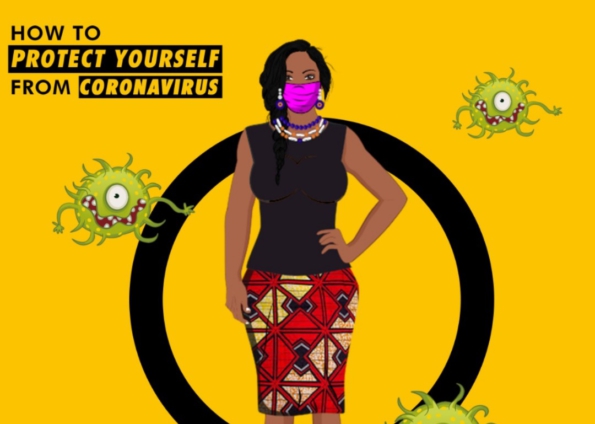The whole world is on a high alert following reports of the outbreak of coronavirus disease in China and it's rampant spread globally.
The World Health Organization (WHO), has declared the virus as a pandemic.
China has reported more than 17,000 cases of the disease and at over 360 people are reported to have died from it.
As of March 13, 2020, the World Health Organisation on its website reports 132,567 confirmed cases, 4,947 deaths and 123 countries and territories with these cases.
In Ghana, the Ministry of Information announced two confirmed cases of the COVID-19 virus, March 12, 2020.
While government action is necessary, there is a lot individuals can also do to stop the deadly disease from spreading and claiming lives.
The virus spreads when an infected person’s saliva or mucus falls on surfaces when they cough or sneeze.
When these are inhaled or picked up by others, the risk of contraction is almost immediate.
Some health centres have defined exposure as being within six feet of infected persons.
Meanwhile, here are tips to help you stay safe from the new virus.
Make handwashing a priority
Always endeavour to wash your hands regularly. Wet your hands with clear running water and soap. Lather your hands and scrub the back of your hands, between your fingers and under your nails. After this, rinse the lather off thoroughly and dry the water off.
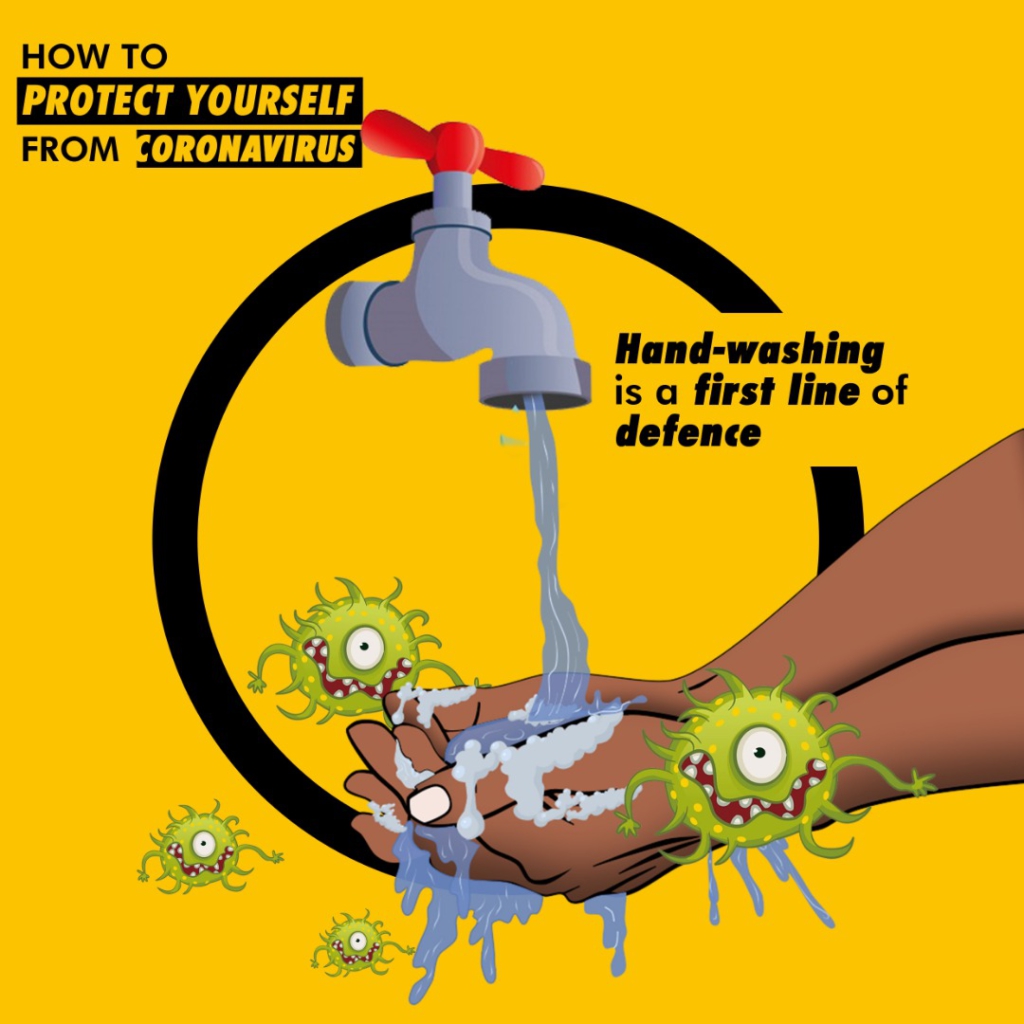
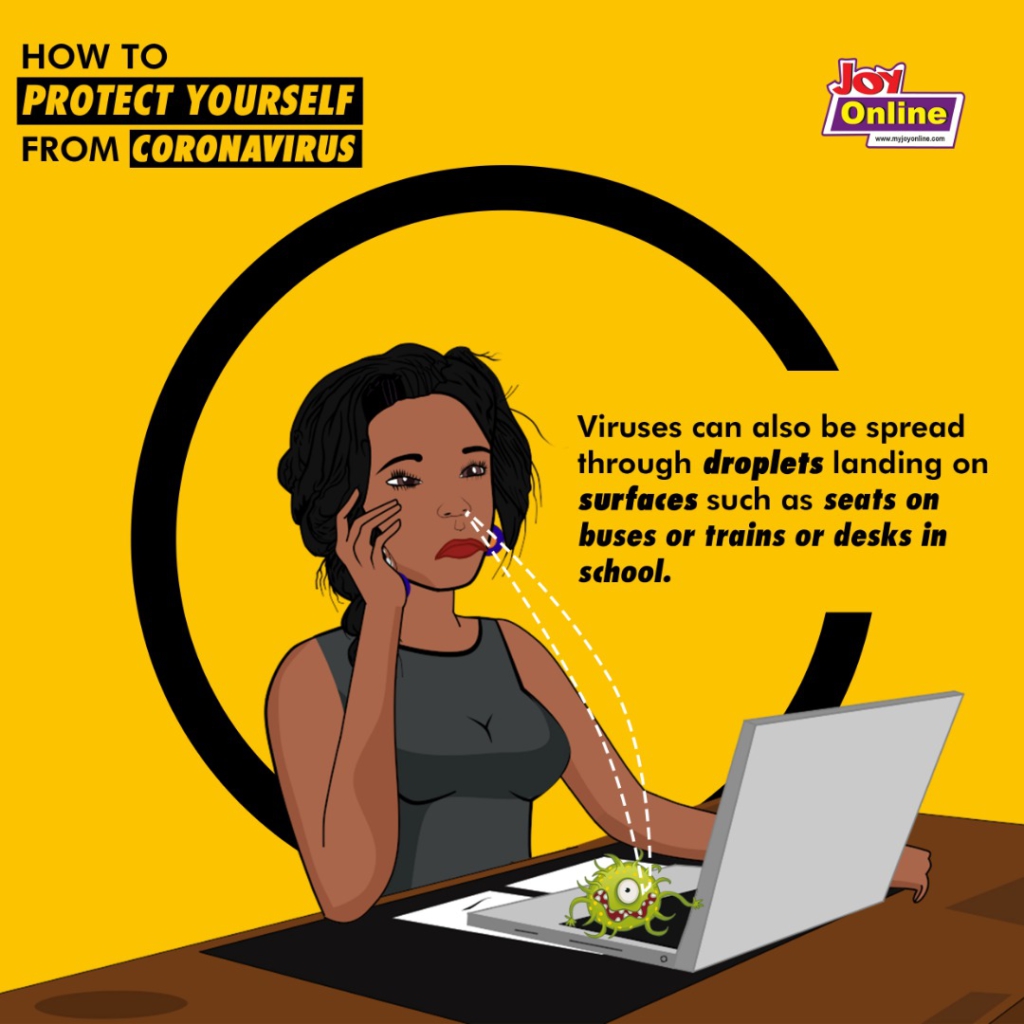
Always cover your mouth when coughing or sneezing
Make it a habit to cover your mouth with a tissue when you sneeze or couch to prevent the spread of the virus. Immediately after using the tissue, dispose of it immediately in a bin and wash your hand. In the absence of a tissue, cover your mouth with an elbow to prevent contact with others
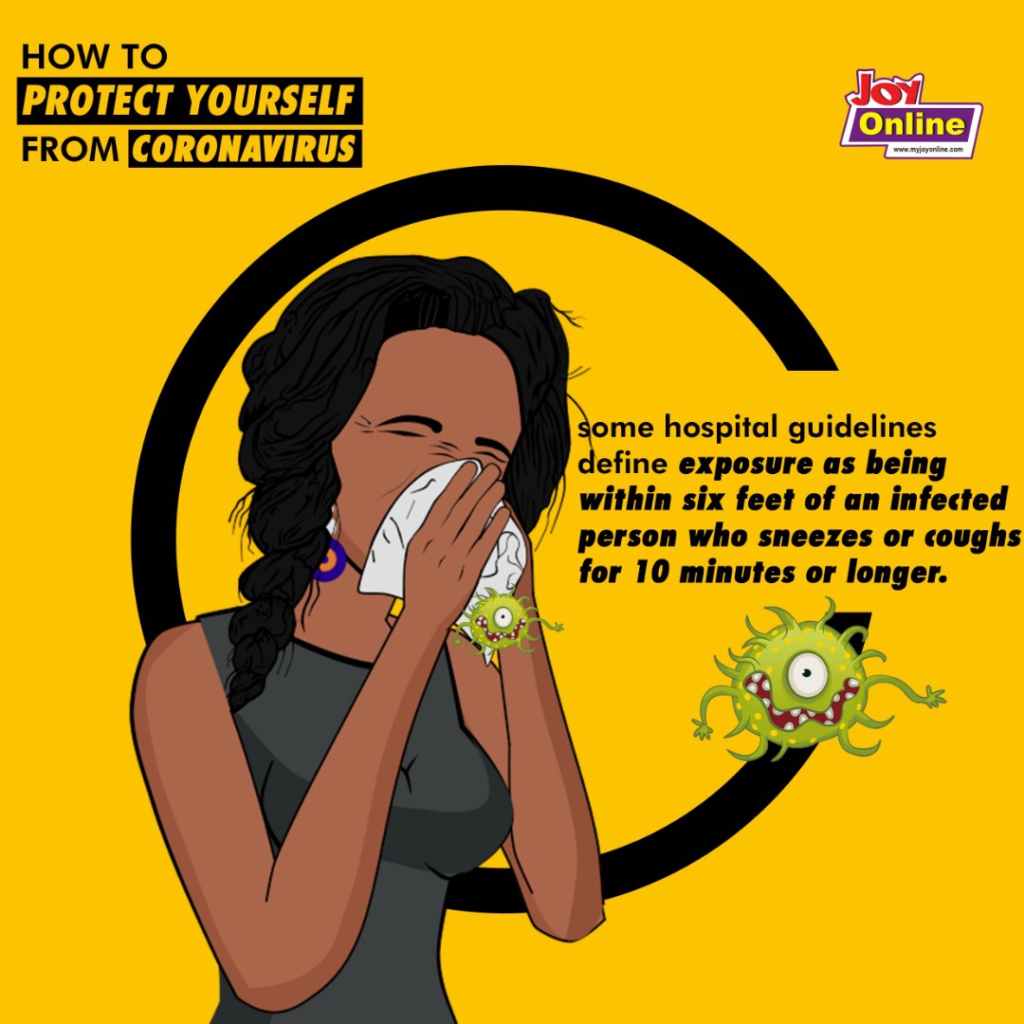
Face masks are an option
This offers some amount of safety as they block little droplet from escaping. However, the masks leave the eyes exposed and so far, there have been recorded cases of infection through the eye.
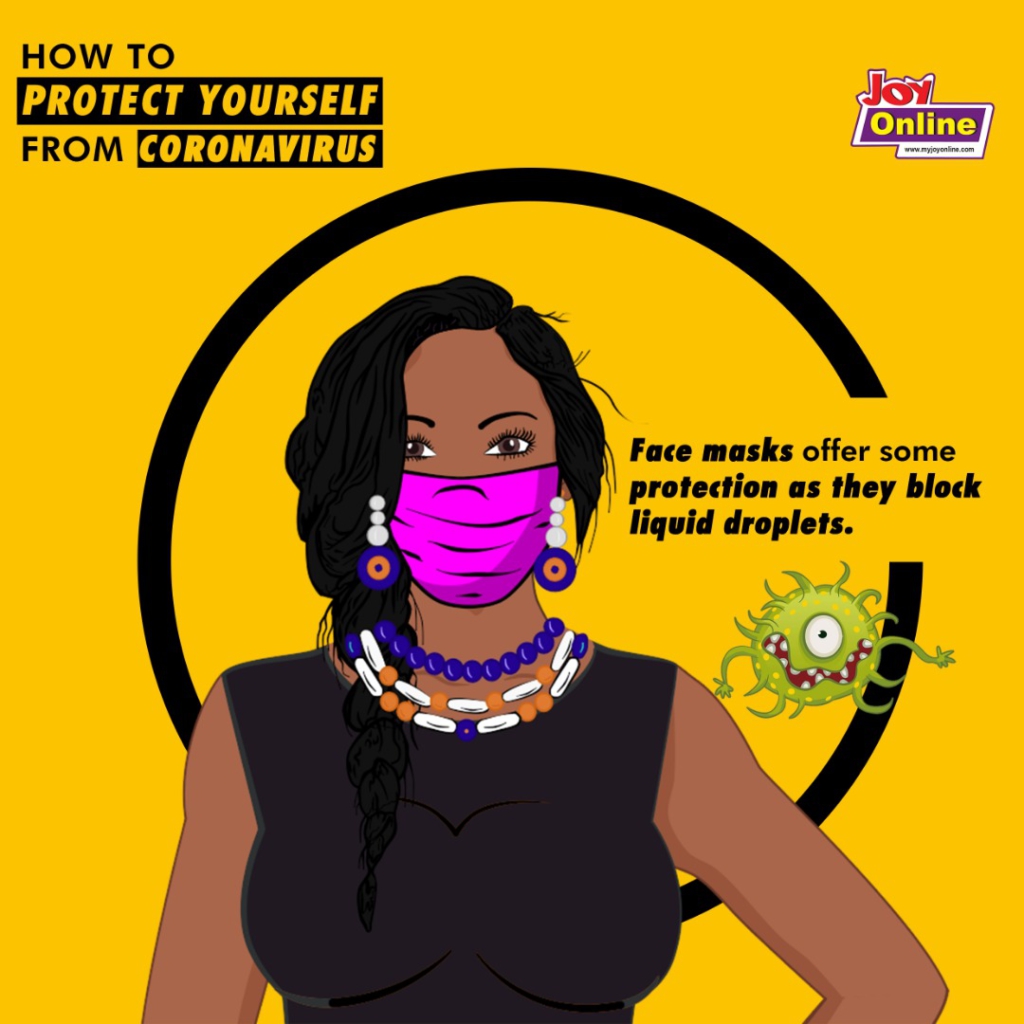
Report to a medical centre without delay
Quickly seek medical attention when you have fevers, cough and sudden breathing difficulty. It is also very important to share your recent travel history with medical professionals.
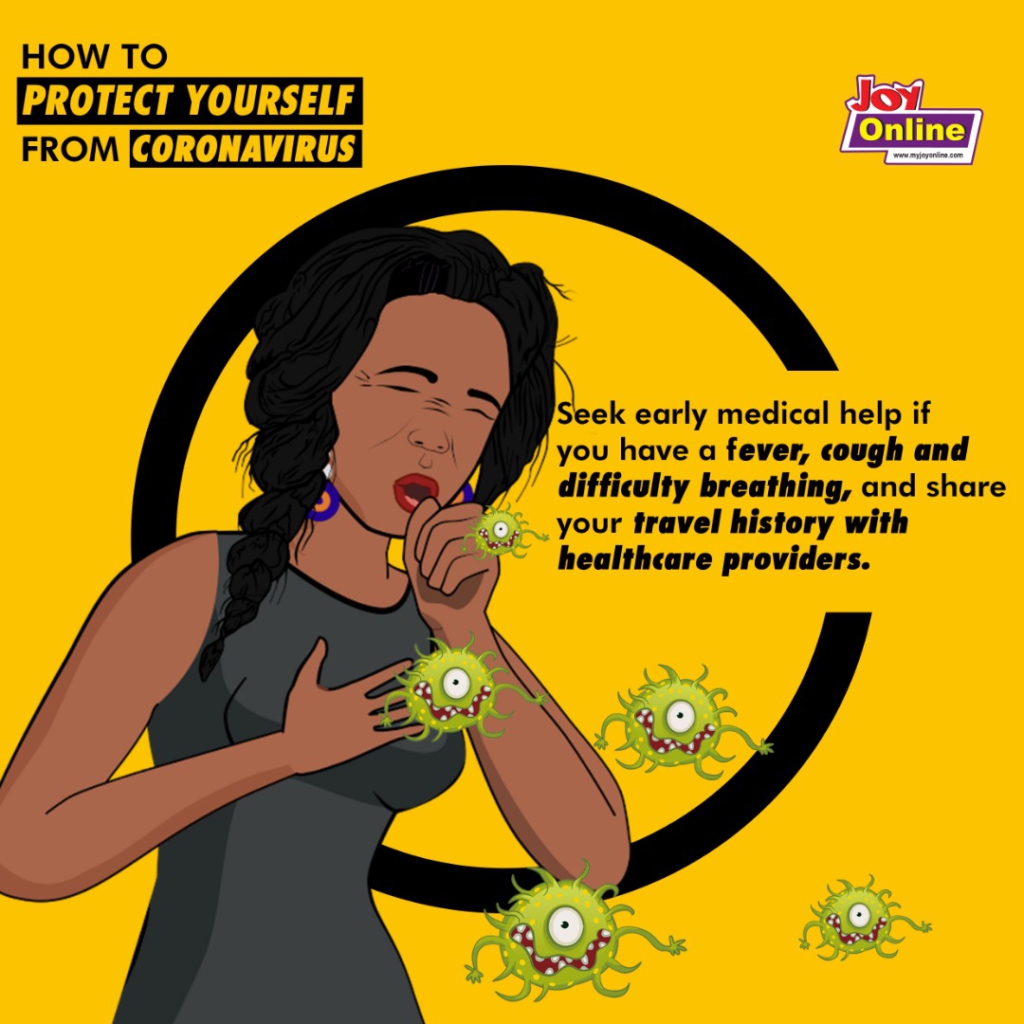
Avoid direct, unprotected contact with animals In affected areas, you must avoid touching live animals especially without any form of protection. Avoid eating raw or semi-cooked animal products in such areas as well.

If you have returned from any affected area in the world and have developed a sore throat, high temperature, runny nose or difficulty in breathing, don’t move outside your home until authorized by a healthcare provider.
Latest Stories
-
Ghana to export nurses and teachers to work in Jamaica under new agreement
1 hour -
Sky Agro, Intraco train poultry farmers on feed use to curb losses
1 hour -
Playback: The Law discusses “The False News Crime”
2 hours -
Ashanti Presbytery holds 15 synod with renewed call for care for environment
2 hours -
NGO Today for Tomorrow hands over 7-classroom block to Sakasaka Cluster of Schools in Tamale
2 hours -
FDA confiscates illicit tobacco products in Accra
2 hours -
Dr. Apaak welcomes Canadian International Development Scholarships team
2 hours -
Police apprehend one more suspect in the killing of 26-year-old footballer in Tamale
3 hours -
Thaddeus Sory accuses Godfred Dame of hypocrisy
3 hours -
Tamale becoming transit point for drugs and arms – Northern Regional Police raise alarm
4 hours -
Thaddeus Sory to Dame: And still crying, even more incongruously – Part I
4 hours -
‘Confidence of the boys seem to be back’ – Kurt Okraku on Black Stars’ performance
5 hours -
IMCC holds strategic dialogue with experts on L.E.D
5 hours -
NDPC and IMCC collaborate to drive decentralisation reforms
5 hours -
‘Let us reaffirm our commitment to building a continent of prosperity’- Mahama to African leaders
5 hours

